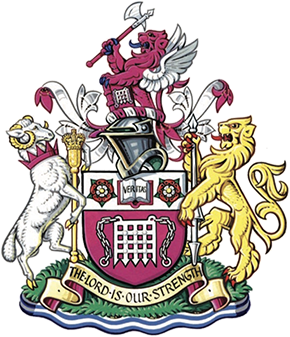
A college is an educational institution or a constituent part of one. A college may be a degree-awarding tertiary educational institution, a part of a collegiate or federal university, an institution offering vocational education, a further education institution, or a secondary school.

Imperial College London is a public research university in London, England. Its history began with Prince Albert, consort of Queen Victoria, who envisioned a cultural area that included the Royal Albert Hall, the Victoria and Albert Museum, the Natural History Museum and several royal colleges. Established by royal charter in 1907, Imperial College London unified into one institution the Royal College of Science, the Royal School of Mines and the City and Guilds of London Institute. In 1988, the Imperial College School of Medicine was formed by merging with St Mary's Hospital Medical School. In 2004, Queen Elizabeth II opened the Imperial College Business School.

Universities in the United Kingdom have generally been instituted by royal charter, papal bull, Act of Parliament, or an instrument of government under the Further and Higher Education Act 1992 or the Higher Education and Research Act 2017. Degree awarding powers and the 'university' title are protected by law, although the precise arrangements for gaining these vary between the constituent countries of the United Kingdom.

A royal charter is a formal grant issued by a monarch under royal prerogative as letters patent. Historically, they have been used to promulgate public laws, the most famous example being the English Magna Carta of 1215, but since the 14th century have only been used in place of private acts to grant a right or power to an individual or a body corporate. They were, and are still, used to establish significant organisations such as boroughs, universities and learned societies.

Goldsmiths, University of London, legally the Goldsmiths' College, is a constituent research university of the University of London. It was originally founded in 1891 as The Goldsmiths' Technical and Recreative Institute by the Worshipful Company of Goldsmiths in New Cross, London. It was renamed Goldsmiths' College after being acquired by the University of London in 1904, and specialises in the arts, design, computing, humanities and social sciences. The main building on campus, known as the Richard Hoggart Building, was originally opened in 1844 and is the site of the former Royal Naval School.

The University of Leeds is a public research university in Leeds, West Yorkshire, England. It was established in 1874 as the Yorkshire College of Science. In 1884 it merged with the Leeds School of Medicine and was renamed Yorkshire College. It became part of the federal Victoria University in 1887, joining Owens College and University College Liverpool. In 1904 a royal charter was granted to the University of Leeds by King Edward VII.
In a number of countries, a university college is a college institution that provides tertiary education but does not have full or independent university status. A university college is often part of a larger university. The precise usage varies from country to country.

The City and Guilds of London Institute is an educational organisation in the United Kingdom. Founded on 11 November 1878 by the City of London and 16 livery companies to develop a national system of technical education, the institute has been operating under royal charter, granted by Queen Victoria, since 1900. The Prince of Wales, later King Edward VII, was appointed the first president of the institute.
In the United Kingdom (UK), a post-1992 university, synonymous with new university or modern university, is a former polytechnic or central institution that was given university status through the Further and Higher Education Act 1992, or an institution that has been granted university status since 1992 without receiving a royal charter. This is used in contrast to "pre-1992" universities.

City, University of London is a public research university in London, United Kingdom, and a member institution of the federal University of London. It was founded in 1894 as the Northampton Institute, and became a university when The City University was created by royal charter in 1966. The Inns of Court School of Law, which merged with City in 2001, was established in 1852, making it the university's oldest constituent part. City joined the federal University of London on 1 September 2016, becoming part of the eighteen colleges and ten research institutes that then made up that university. In August 2024, City will merge with St George's, University of London to form City St George's, University of London.

Third-level education in the Republic of Ireland includes all education after second-level, encompassing higher education in universities and colleges and further education on Post Leaving Certificate (PLC) and other courses.

The University of Westminster is a public university based in London, United Kingdom. Founded in 1838 as the Royal Polytechnic Institution, it was the first polytechnic to open in London. The Polytechnic formally received a Royal charter in August 1839, and became the University of Westminster in 1992.

Founded in 1854 as the Lambeth School of Art, the City and Guilds of London Art School is a small specialist art college located in central London, England. Originally founded as a government art school, it is now an independent, not-for-profit charity, and is one of the country's longest established art schools. It offers courses ranging from art and design Foundation, through to BA (Hons) undergraduate degrees and MA postgraduate courses in fine art, carving, conservation, and art histories. In addition, it offers the only undergraduate and postgraduate degrees in Britain in stone and wood carving: historic architectural stone and ornamental woodcarving and gilding.

GuildHE Research is an organisation that provides training and support for researchers and students in Britain. It is a sub-association of GuildHE.












